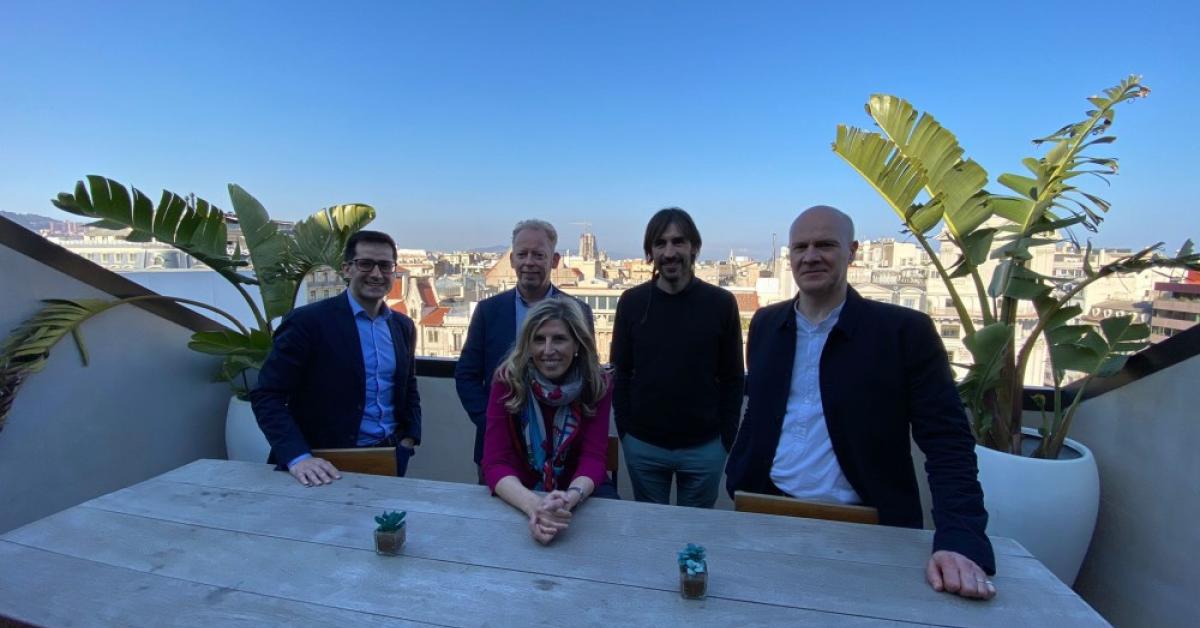
Spanish startup Inbrain Neuroelectronics has raised €14.35m to test its graphene brain implant technology on humans.
The company is a spin-off company of Graphene Flagship partners the Catalan Institute of Nanoscience and Nanotechnology (ICN2) and ICREA, Spain. The company designs small, wireless implantable brain intelligent systems to interpret brain signals and produce a therapeutic response adapted to the clinical condition of each specific patient. The implant uses a nanoscale graphene electrode with the potential to reach single-neuron resolution.
Inbrain raised its first seed investment from a syndicate of investors led by Asabys Partners (through Sabadell-Asabys Health Innovation Investment) and Alta Life Sciences, including the Institut Català de Finances (ICF), Finaves (IESE Business School) and BStartUp in June 2020.
"Graphene Flagship spin-off Inbrain is leading the way in the field of graphene-based implantable brain devices, and I hope that this success will raise the interest of new stakeholders and corporates towards the opportunities graphene offers in the healthcare domain," said Cinzia Spinato, Graphene Flagship Business Developer for Biomedical Applications.
"I remember when Inbrain was born, and it is impressive how they have grown so fast: transforming a laboratory technology into a product – an outstanding milestone. This investment will be fundamental to speed up the development of graphene-based medical devices, which will be tested on patients much earlier than everyone expected.”
The Series A investment is one of the biggest rounds in the Spanish MedTech industry and was co-led by Asabys Partners and Alta Life Sciences with Munich-based Vsquared Ventures and TruVenturo, a German tech and life science company investor. The financing round also counts on the follow-on investment from ICF Venture Tech II, investment fund from the ICF.
Inbrain is now a Graphene Flagship partner and is led by Carolina Aguilar, who was the former Medtronic Deep Brain Stimulation European and Global Commercialization Director along with UK and Spanish researchers. The technology development team consists of neurotechnology experts such as Bert Bakker (CTO) and Michel Decre (Technology Advisor & Board Member) from Philips, and other European successful neurotechnology start-ups.
According to a 2010 study commissioned by the European Brain Council, the cost of brain disorders in Europe alone is approximately €800bn per year, with more than one-third of the population affected. Around 30 percent of patients with a neuronal disease are resistant to pharmacological treatment and do not have an effective therapy. The high incidence of brain-related diseases worldwide, and their huge social cost, call for greater investments in basic research in this field, with the aim of developing new and more efficient therapeutic and diagnostic tools. Companies such as Bioinduction in the UK are also developing brain implant technology.
Existing brain interfaces are based on metals such as platinum and iridium, which impose significant restrictions in terms of miniaturisation and signal resolution, and therefore cause considerable side effects. For this reason, there is a 50 percent rejection rate in candidate patients. Using graphene overcomes the current limitations of metal-based neural interfaces.
The implant uses machine learning from the brain of each specific patient and trigger adaptive responses. Using 'big data' management will permit remote monitoring of the device and data processing.
“This substantial investment exemplifies the growing interest and ever-expanding opportunities to exploit graphene and layered materials in the biomedical domain. Due to its unique properties, graphene has the potential to transform this application area. The Graphene Flagship has chosen biomedical applications as a focus area for commercialisation, and continues to support efforts to foster new innovations – from research to the factory floor, now and into future,” said Kari Hjelt, Graphene Flagship Head of Innovation.
www.inbrain-neuroelectronics.com
Related articles
Other articles on eeNews Europe
Graphene brain implant startup raises €14m - eeNews Europe
Read More

No comments:
Post a Comment